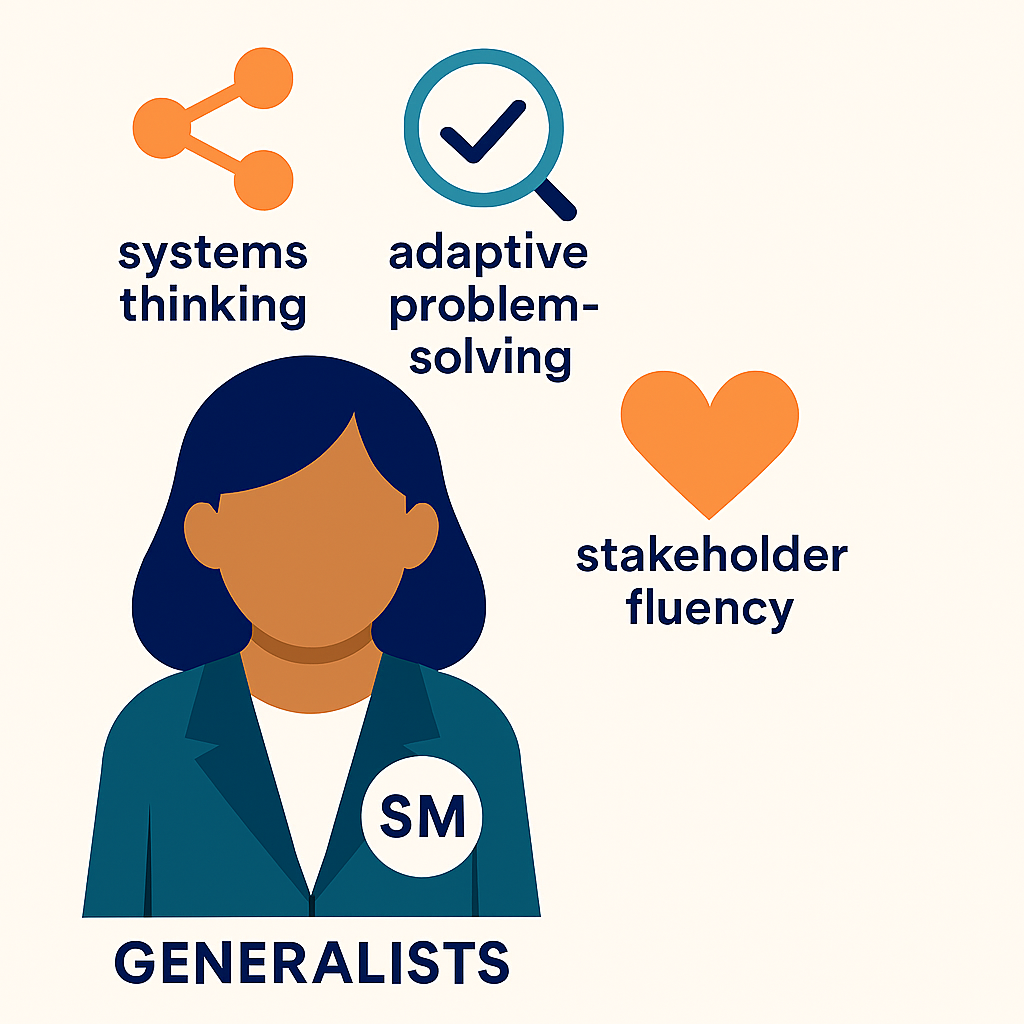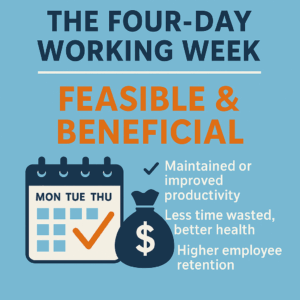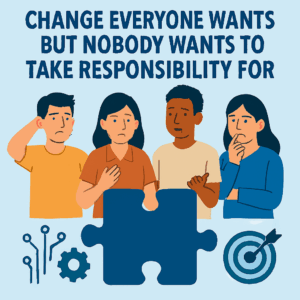I’m a generalist. No shame in saying it.
Many of my colleagues at Digital Rehab lean toward specialist expertise – and that’s a strength too. But having owned and run several successful Services businesses, I’ve watched the pendulum swing between the need for digital natives to be specialists or generalists to support in transformation. And right now, it’s swinging back.
What Clients Are Asking
An increasing number of clients are asking:
Should we build our digital marketing team around generalists or specialists?
My answer is always bespoke—tailored to the client’s culture, maturity, and strategic goals. But one thing is clear:
Generalists are becoming essential.
They bring a macro perspective, helping shape holistic plans that inform projects, campaigns, and services with context and cohesion.
Generalists vs. Specialists: What’s the Difference?
- Generalists have broad experience across disciplines, sectors, and commercial models. They’re adaptable, strategic, and often excellent at framing problems and orchestrating delivery.
- Specialists go deep in a niche—whether it’s affiliate marketing, email automation, or data architecture. They’re the go-to experts when precision is required.
Both are valuable. But in fast-moving environments, generalists often have the edge in leadership roles. Why? Because they can pan out, assess the broader business landscape, and engage specialists where needed.
The Risk of Over-Specialisation
With tech evolving rapidly and new platforms emerging constantly, specialists in leadership roles may struggle to zoom out and appraise the bigger picture. I’ve seen marketing departments suffer from:
- Too many specialists clashing on integrated campaigns
- Too few skilled generalists, leading to excessive outsourcing and inflated costs
- A lack of strategic planning and procurement capability
A Culture That Values Breadth
I recently read a comment that stuck with me:
“Generalists will thrive in a culture where it’s increasingly valuable to know a little bit about a lot.”
That’s the reality of modern business. Generalists help organisations stay adaptive—engaging specialists based on need, not default.
Carter Phipps, author of Evolutionaries, reinforces this view:
“We’ve become so focused on specialisation, but just as there are truths that can only be found as a specialist, there are truths that can only be revealed by a generalist who can weave these ideas in the broader dynamic environments.”
The Rise of Hybrid Roles
Senior project managers today are expected to wear multiple hats – business analyst, solution architect, strategist, designer, tester. The ability to flex across domains is no longer a bonus; it’s a requirement.
Will We See a Surge in Generalists?
I believe we will. And I hope we do.
Generalists help frame the work, plan methodically, and oversee delivery. Specialists fill the gaps – bringing depth where it’s needed most.
It’s not a competition. It’s a collaboration.


























